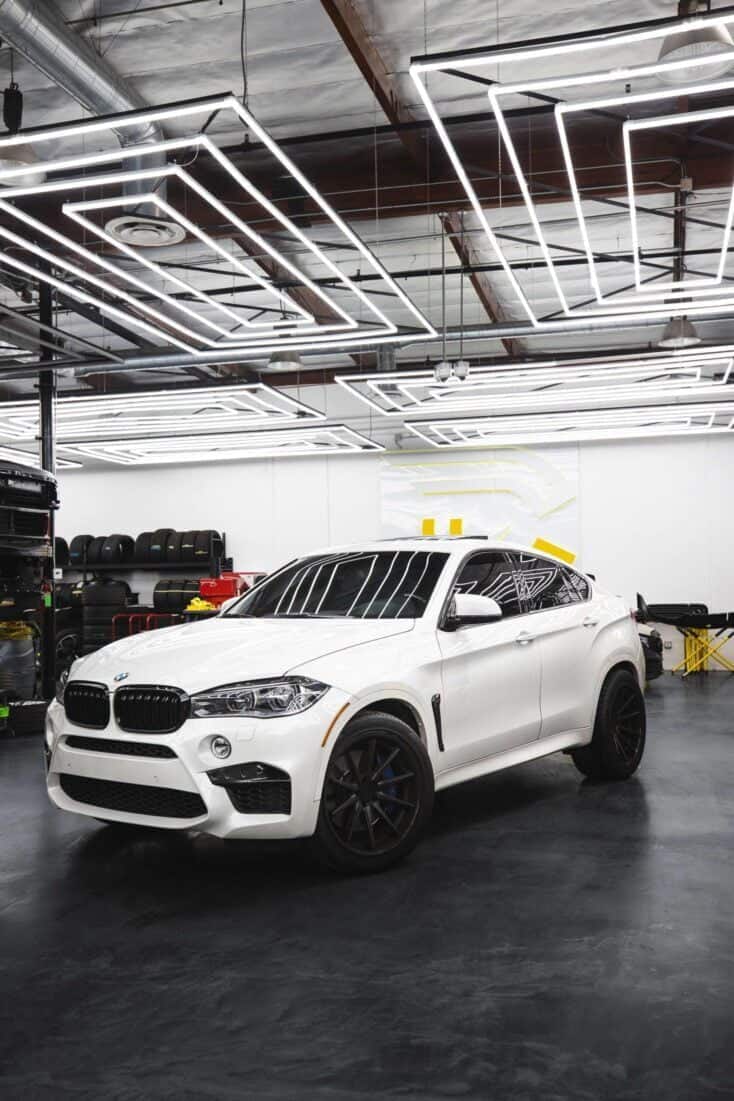About
Pickinz Used Cars reach is limitless, and we take pride in making sure we provide only the best vehicles to our customers. We are the
We are the trusted authority of the automobile industry and have been for over 10 years. Our team of professionals is unwavering in providing you with the best services, quality vehicles, and exceptional value for your money.
We strongly believe in honesty, integrity, and transparency in forming solid relationships with our customers. We prioritize your needs, every time, and take pride in always putting you first.
Thank you for choosing us as your automotive partner! We’re confident that we’ll exceed your expectations.

Know before you buy: Honest reviews, rankings and video test-drives
Know your offer: Deal ratings on new and used listings near you
Know your purchase: Tools to calculate budget, financing and more
Latest Car News From Our Experts
Check out our electric vehicle rankings to see how the EVs on your short list measure up against the competition.ng elit, sed do eiusmod tempor incididunt ut labore et dolore magna.
Most popular cars in America.
Pickinz Used Cars.com brings you the most popular cars, trucks, and SUVs,
Join Pickinz
Receive pricing updates, shopping tips & more!








What does CPO mean?
A certified pre-owned or CPO car has been inspected to meet minimum quality standards and typically includes some type of warranty. While dealers and third parties certify cars, the gold standard is an automaker-certified vehicle that provides a factory-backed warranty, often extending the original coverage. Vehicles must be in excellent condition and have low miles and wear to be certified, which is why off-lease vehicles feed many CPO programs.
At most new-car dealerships, you will encounter certified pre-owned vehicles. They are a popular choice for consumers because they offer more of what many buyers crave in a used vehicle: peace of mind. The term “certified” means that a dealer has certified to the manufacturer that the car passed a multipoint inspection, which can encompass 150 or more items, and has been repaired as needed to qualify for the CPO program. Dealers are supposed to file paperwork with the manufacturer to support this and pay a fee to obtain CPO status for the vehicle.
Going with a CPO vehicle can offer a break from the record high new-car prices seen during the current inventory shortage and the high depreciation rate that comes with new vehicles. Data shows the average advertised price among Cars.com dealers for CPO vehicles was $30,916 through the first quarter of 2022, while new vehicles averaged $35,915 for the same time period.
Related: Are Certified Pre-Owned Cars Worth It?
Every major manufacturer has a CPO program, and recent estimates show that certified cars make up a sizable portion of the used market. From January to April 2022, approximately 16% of all used-vehicle inventory among Cars.com franchised dealers was CPO.
According to David Paris, senior manager of market insights at J.D. Power, premium CPO vehicles account for a larger percentage of used sales compared to their mass-market counterparts: In the first quarter of the year, they made up approximately 29% of total used sales at franchised dealers, while only 14% of all nonluxury used cars carried the certification.
Some dealer groups, and even individual dealers, offer their own certification programs, but they are different from the CPO programs backed by vehicle manufacturers.
CPO vehicles usually are priced higher than non-CPO used cars (that difference can be from several hundred dollars to a couple of thousand) because they are touted as the best used cars available. They are supposed to have been reconditioned to like-new condition, they’re backed by a manufacturer’s warranty and they come with additional benefits that may not be provided on other used cars.
In other words, certified pre-owned cars offer most of what you would get with a new car — but at a lower price.
Age and mileage limits to becoming a CPO vehicle vary by manufacturer (compare them here), but the vehicles are usually less than 6 years old and have fewer than 80,000 miles. In addition, the CPO programs extend the manufacturer’s original basic or powertrain warranties (or both) and often include roadside assistance and a free vehicle history report.
Moreover, CPO vehicles often are available with low-interest financing from the manufacturer that is lower than what many consumers would be able to get on other used cars. According to a recent Experian auto finance report from late 2021, the average new-car loan rate was 3.86%, while the average used-car rate was significantly higher at 8.21%.
CPO programs started with luxury brands such as Mercedes-Benz and Lexus, but with all major manufacturers now involved, the most popular programs belong to the top-selling brands: Toyota, Honda, Chevrolet and Ford.
Here are some tips for buying a CPO car:
While CPO cars can offer consumers peace of mind, buyers can often pay a price for that added confidence. Auto manufacturers tack on anywhere from 2% to 8% of the original used-car price for that certification sticker, experts say. Typically, the higher-end the model or brand, the higher the percentage on the car.
Although no current data suggest that certified used cars are vastly more reliable than their noncertified brethren, they do come with the suggestion of better roadworthiness.
Manufacturers place restrictions on what cars can be certified and offer multipoint inspection processes that vary from program to program.
Don’t put too much stock in certification itself. Inspection checklists should not be relied on as precise indicators of the car’s condition, experts say. They are more likely to give you an overall picture of the car’s health today, but not for tomorrow. Choosing a CPO vehicle that performs well in reliability ratings can offer additional peace of mind.
One bonus of certification is that it gives car shoppers the opportunity to buy up in a category, a purchasing experience they might otherwise be unable to attain. For example, it might allow a consumer to move into a certified pre-owned luxury car rather than a decked-out new economy car. That helps manufacturers, too, as they see these shoppers as potential longtime fans of their brand.
Consumers can also benefit: CPO programs create vehicles with higher resale values, providing increased bargaining power when it’s time to trade the car in.
Often, reduced-rate financing options are available for CPO purchasers.
At most new-car dealerships, you will encounter certified pre-owned vehicles. They are a popular choice for consumers because they offer more of what many buyers crave in a used vehicle: peace of mind. The term “certified” means that a dealer has certified to the manufacturer that the car passed a multipoint inspection, which can encompass 150 or more items, and has been repaired as needed to qualify for the CPO program. Dealers are supposed to file paperwork with the manufacturer to support this and pay a fee to obtain CPO status for the vehicle.
Going with a CPO vehicle can offer a break from the record high new-car prices seen during the current inventory shortage and the high depreciation rate that comes with new vehicles. Data shows the average advertised price among Cars.com dealers for CPO vehicles was $30,916 through the first quarter of 2022, while new vehicles averaged $35,915 for the same time period.
Related: Are Certified Pre-Owned Cars Worth It?
Every major manufacturer has a CPO program, and recent estimates show that certified cars make up a sizable portion of the used market. From January to April 2022, approximately 16% of all used-vehicle inventory among Cars.com franchised dealers was CPO.
According to David Paris, senior manager of market insights at J.D. Power, premium CPO vehicles account for a larger percentage of used sales compared to their mass-market counterparts: In the first quarter of the year, they made up approximately 29% of total used sales at franchised dealers, while only 14% of all nonluxury used cars carried the certification.
Some dealer groups, and even individual dealers, offer their own certification programs, but they are different from the CPO programs backed by vehicle manufacturers.
CPO vehicles usually are priced higher than non-CPO used cars (that difference can be from several hundred dollars to a couple of thousand) because they are touted as the best used cars available. They are supposed to have been reconditioned to like-new condition, they’re backed by a manufacturer’s warranty and they come with additional benefits that may not be provided on other used cars.
In other words, certified pre-owned cars offer most of what you would get with a new car — but at a lower price.
Age and mileage limits to becoming a CPO vehicle vary by manufacturer (compare them here), but the vehicles are usually less than 6 years old and have fewer than 80,000 miles. In addition, the CPO programs extend the manufacturer’s original basic or powertrain warranties (or both) and often include roadside assistance and a free vehicle history report.
Moreover, CPO vehicles often are available with low-interest financing from the manufacturer that is lower than what many consumers would be able to get on other used cars. According to a recent Experian auto finance report from late 2021, the average new-car loan rate was 3.86%, while the average used-car rate was significantly higher at 8.21%.
CPO programs started with luxury brands such as Mercedes-Benz and Lexus, but with all major manufacturers now involved, the most popular programs belong to the top-selling brands: Toyota, Honda, Chevrolet and Ford.
Here are some tips for buying a CPO car:
While CPO cars can offer consumers peace of mind, buyers can often pay a price for that added confidence. Auto manufacturers tack on anywhere from 2% to 8% of the original used-car price for that certification sticker, experts say. Typically, the higher-end the model or brand, the higher the percentage on the car.
Although no current data suggest that certified used cars are vastly more reliable than their noncertified brethren, they do come with the suggestion of better roadworthiness.
Manufacturers place restrictions on what cars can be certified and offer multipoint inspection processes that vary from program to program.
Don’t put too much stock in certification itself. Inspection checklists should not be relied on as precise indicators of the car’s condition, experts say. They are more likely to give you an overall picture of the car’s health today, but not for tomorrow. Choosing a CPO vehicle that performs well in reliability ratings can offer additional peace of mind.
One bonus of certification is that it gives car shoppers the opportunity to buy up in a category, a purchasing experience they might otherwise be unable to attain. For example, it might allow a consumer to move into a certified pre-owned luxury car rather than a decked-out new economy car. That helps manufacturers, too, as they see these shoppers as potential longtime fans of their brand.
Consumers can also benefit: CPO programs create vehicles with higher resale values, providing increased bargaining power when it’s time to trade the car in.
Often, reduced-rate financing options are available for CPO purchasers.
While you may not find the zero-percent deals occasionally offered on new vehicles, you will find low interest rates on many certified models. Shoppers with excellent credit can take advantage of rates that are well below the average of 8% for noncertified used cars.
Pickinz Used Cars reach is limitless, and we take pride in making sure we provide only the best vehicles to our customers. We are the